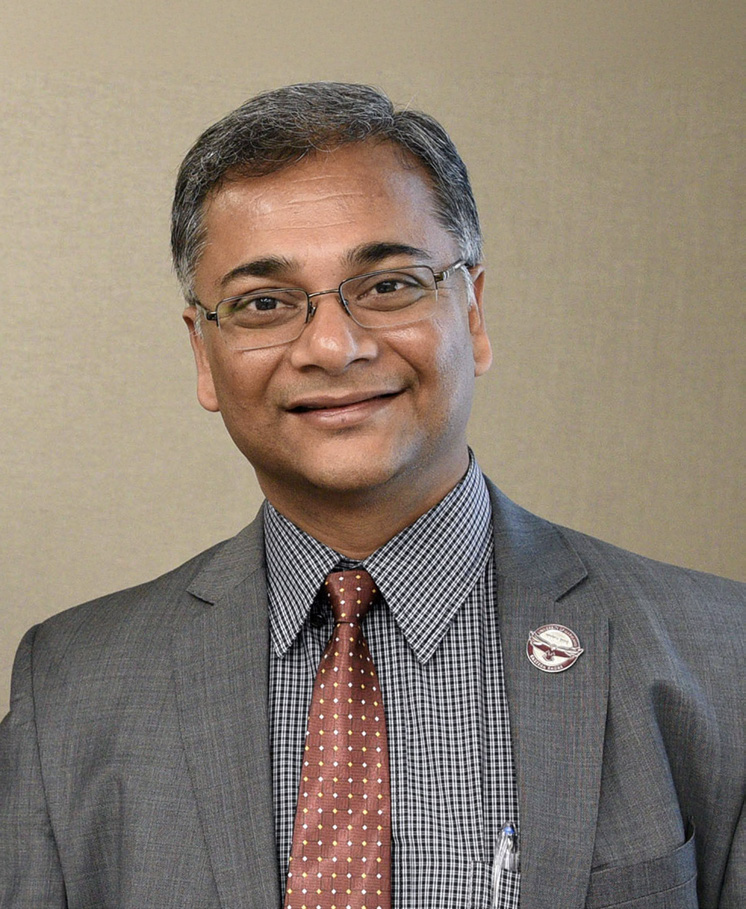 Kausik Das
Kausik Das
Scientific excellence drives all of KITP’s endeavors, and it is achieved through unfettered intellectual exchanges between each scientist who visits. Extended interaction times and physical spaces for gathering are provided, and efforts are made to create an environment that is truly welcoming of the diversity of ideas and people within the scientific community. In 2022, KITP launched a new initiative funded by the Heising-Simons Foundation, the KITP Fellows program, that takes this one step further by more intently engaging faculty from non-R1 institutions (typically with higher teaching loads) that are also minority-serving institutions (MSI). The MSIs requirement is to acknowledge and ultimately address the underrepresentation of minority populations in physics research and academia. By providing faculty at these institutions with time to engage in research and expand their networks at KITP, what they gain from their fellowship is brought back to their classrooms to directly benefit their students.
The far-reaching impact of the KITP Fellows program was recently demonstrated through the experience of KITP Fellow Kausiksankar Das of University of Maryland Eastern Shore (UMES). Das visited in 2023 and was eager for the intellectual engagement with what he characterizes as "frontline researchers" at the institute.
During one of KITP’s daily cookie and coffee breaks, he met Harvard professor Cassandra Extavour and a postdoctoral researcher working in her lab, Suhrid Ghosh. The group "discussed ways to integrate HBCU students into cutting-edge research," says Das, which was his priority during the fellowship. HBCUs, like UMES, are historically Black colleges and universities that were established to educate Black Americans during the era of racial segregation. HBCUs welcome students from all backgrounds, but their mission is to promote access to higher education within the Black community. Das and Extavour kept in touch after his visit, and the connection led to exciting collaborations, like Extavour speaking at a UMES seminar in 2025. Without KITP, Das explains, he likely would not have met the Harvard researchers with whom he has built a fruitful relationship that is already making an impact at his university.
As a scientist and an educator, Das holds a holistic view on how to support students whose identities and backgrounds are intertwined with "historical baggage" that can put them at a disadvantage. In his experience, it is not sufficient to simply fund and establish a new program, "it’s the care and the support system that you need" to make a difference for students. It is up to those with influence, such as faculty, administrators, policymakers, and entire agencies or institutions to promote ideals and create opportunities that "build self-efficacy…we need to bring it out." He maintains that when students feel like others believe in their abilities and are given a place to belong, it makes them want to apply themselves to their fullest potential.
At UMES, Das’s lab of primarily undergraduates have conducted research in fluid dynamics and nanotechnology that has led to publications, collaborations with MIT and Princeton, and recognition at national conferences. He instills a belief within his students that they are capable of the same great achievements as students at institutions with greater prestige and resources, which they have exemplified by their accomplishments. He has mentored more than 40 UMES undergraduates who have participated in prominent research programs across the country, gone on to graduate school—many on competitive scholarships—at universities like Yale, Duke, and Dartmouth, and are now entrepreneurs, professionals in multinational companies, and researchers at national labs. "There is no absence of talent in minority-serving institutions," according to Das, but that talent must be nurtured in a way that addresses the unique obstacles minority students face--which means building foundations of genuine care for students within our systems.
According to Das, it is important to tell this story because he has interfaced with "the movers and shakers in science" during his fellowship. He describes KITP as a place that "has created this atmosphere of psychological safety," in which scientists "can freely discuss, freely brainstorm, freely debate and challenge each other. This is how science progresses, and KITP has done that extremely well." In the same way he aims to motivate students, he felt encouraged by the other visiting scientists who were receptive to his ideas and made him feel appreciated for his work and contributions.
Participating in the KITP Fellows program served as a "catalyst, energizing all of these reactions" for Das. He emphasizes the value in helping faculty create "pipelines" of opportunity, because cultivating their ambitions enriches entire institutions. After returning to UMES, he shared with students and fellow faculty members the numerous research developments he learned from his peers at KITP. He was also pleased to pass along a message of inspiration: "the rest of the world appreciates what we do." Das came away from his experience as a KITP Fellow with a reinvigorated understanding that the good work he and other minority-serving faculty do for students and for science "is not in vain."
by Demi Cain
KITP Development Coordinator
